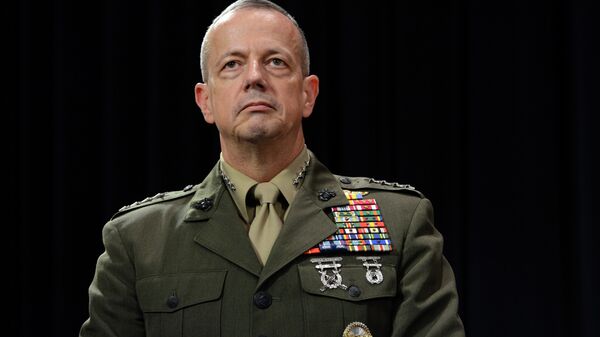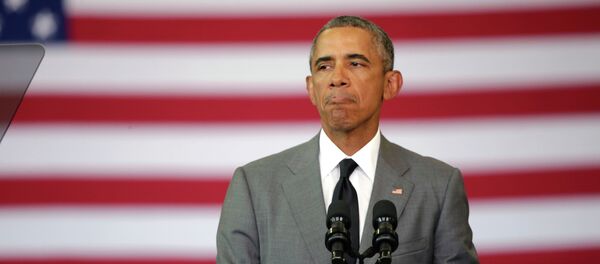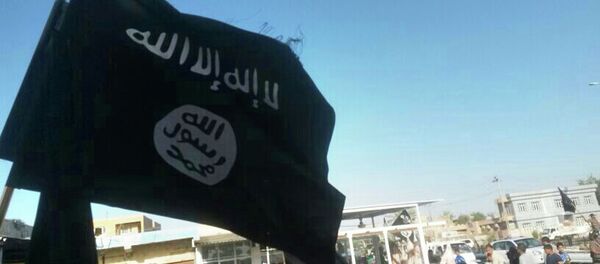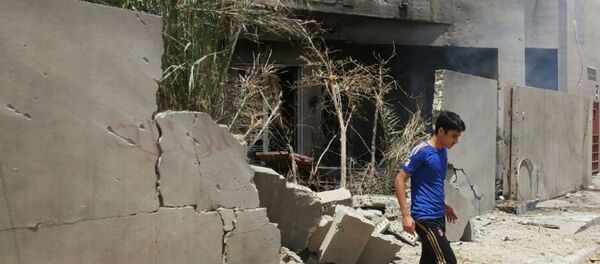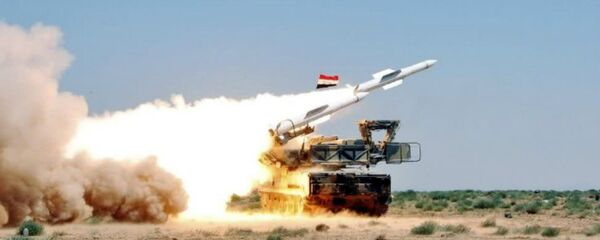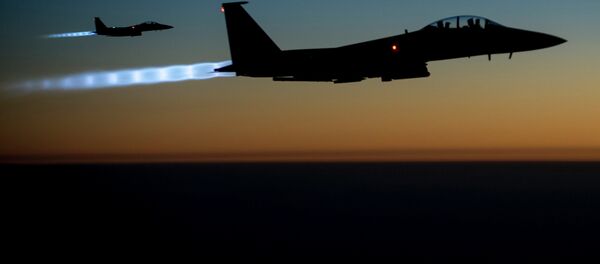"In the intervening months, we've seen remarkable progress in many respects. We've seen the emergence of a capable leader and a partner in Baghdad in the form of [Iraqi Prime Minister] Haider al-Abadi…We've seen a coalition come into existence in the intervening months between those days and today, a coalition that has worked very hard to stem the flow of foreign fighters," Allen noted. The official added that much has also been done to impede ISIL's finances and its recruitment capability, and in countering the group's ideology and its propaganda efforts.
The general went on to list off the military reversals faced by the terror group, from the Iraqi Security Forces successes in regaining Tikrit, to Kurdish forces' successes in Kobani, with the help of coalition air forces, to the blocking off of ISIL access points into Syria from Turkey.
Allen emphasized that coalition airstrikes have allowed US allies on the ground to accomplish "significant progress in the battlespace in Syria," in addition to "providing significant support to the Iraqi forces in the field."
The rosy and optimistic estimations of top officials, on the effectiveness of the US-led military operation, including those of General Allen, have been repeatedly challenged in past months by a number of experts and commentators. Critics cite everything from the cost of the operation (estimated at over $3.7 billion and counting) to the civilian casualties from the bombing campaign, to the fact that since the operation began, ISIL has only increased the frequency of its attacks, upped recruitment, and expanded its brutality toward the areas under its control.
Hasan Abdullah, the Director of Intelligence & Research at the Islamabad-based SPEAR Institute, echoed Bucci's sentiment, telling Sputnik that "it's pretty clear that the West hasn't exactly been able to meet its objectives," and adding that US foreign policy, including its attempts to get rid of some 'dictators' while cozying up to others, has "weakened the democratic narrative…and has helped the Jihadists and Islamists in general."
'Assad Must Go'
In his ABC interview, General Allen appeared to demonstrate exactly the type of logic that Abdullah was talking about, suggesting a "political transition away from Bashar al-Assad" is necessary, and emphasizing that "he can't be part of a solution." The general noted that the US would have to continue that "conversation with our international partners and ultimately with the opposition elements in Syria to effect that transition."
Queried about how he sees such a 'political transition' occurring, Allen suggested that Assad and other elements of Syria's leadership should be removed "in the matter in which he has led this conflict," adding that it will be necessary to "empower" the opposition both "militarily and politically." The general also suggested that the US remains "wedded to the principle" that "moderate, reliable, vetted elements" of the Syrian opposition can even be used in the effort "to degrade and defeat Daesh."
For its part, Russia has repeatedly stressed that the anti-ISIL coalition must work with Assad if it genuinely wants to end the war. In an interview for Russian television on Sunday, Foreign Minister Sergei Lavrov stressed that if the coalition's goal "is to prevent the consolidation of the Iraqi and Syrian territories as the heartland of an ISIL-promoted caliphate, they should focus on helping those who are fighting these rebels on the ground –the Iraqi army, the Iraqi Kurds, the Syrian army and Syrian Kurdish militias." The minister stressed that the Syrian army can be one of the most effective forces in battling the terror group, adding that Washington's calculation about "withdrawing the Syrian army from the fight…is absurd."
Refugees May Pose Security Threat
The general was not probed by his interviewer and did not clarify whether the US invasion of Iraq, airstrikes against Libya, or US support for anti-Assad forces in Syria may have had something to do with the emergence of the crisis. Instead, he emphasized that Syria, including President Assad's response to the Arab Spring, "is one of the reasons that we have this humanitarian catastrophe in the region."
As far as the US is concerned, Allen suggested that the US should be careful about the refugees that they accept, noting that he was certain that US security officials are aware that ISIL could be trying to embed fighters in among the refugees, and saying that he has "tremendous confidence" in the FBI and other agencies charged with checking migrants.
"I think it's a threat. We need to understand the totality of it, I think, before we could brand it a national security threat. But it's clearly something we should be thinking about," the general noted.

